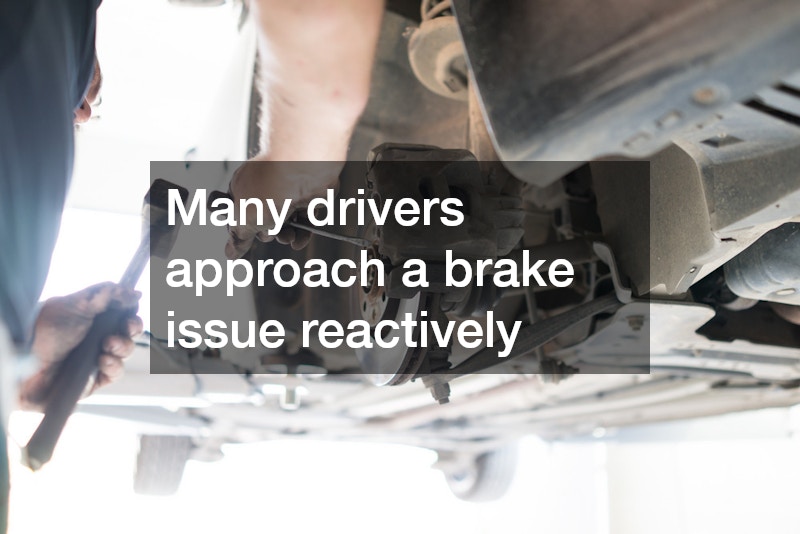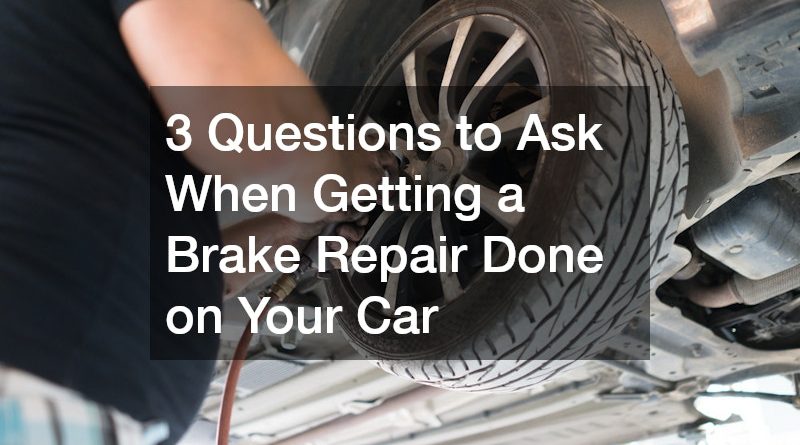3 Questions to Ask When Getting a Brake Repair Done on Your Car
Whether you’re commuting daily, heading off on a road trip or just navigating local errands, your vehicle’s safety systems play a vital role in protecting you and your passengers. At the heart of those systems is your car’s braking mechanism — a component that should never be taken for granted. When it comes time for a brake repair, asking the right questions can save you time, money and potential risk.
Many drivers approach a brake issue reactively, responding only once the warning signs become too loud — literally or figuratively — to ignore. However, a proactive mindset backed by informed questions can significantly improve your experience and outcome.
Here are three important questions to ask when you’re having a repair done on your car.
What Exactly Needs to Be Repaired or Replaced?
The term ‘brake repair’ covers a broad range of services. It could be as minor as replacing worn brake pads or as extensive as servicing the entire braking system — including rotors, calipers and brake fluid lines. Before approving any work, it’s crucial to understand what the technician has diagnosed and why.
Start by asking for a clear explanation of what parts are worn or damaged. A reputable mechanic will be able to show you the issues directly or provide photographs and a detailed inspection report. If your mechanic simply recommends a “full brake service” without explanation, dig deeper. There’s a significant difference in both cost and necessity between replacing a pair of pads and reconditioning your full braking assembly.
Understanding the specific repairs needed will help you determine if the solution is proportional to the problem. For example, if you hear a high-pitched squealing, you might only need new brake pads. But if your car vibrates when braking or pulls to one side, the issue could be more serious, such as warped rotors or a brake calliper fault.
You should also ask about the quality of replacement parts. Are they OEM (original equipment manufacturer), aftermarket or reconditioned? Each has its own benefits and drawbacks and the decision may affect both your car’s performance and your warranty status.
How Long Will the Repair Take?
Time is an important factor, particularly if you’re relying on the vehicle for daily use. Not every repair can be completed within a few hours and a professional repair shop should be able to give you an accurate estimate based on their assessment.
The expected repair time depends on the complexity of the job and the availability of parts. While basic pad replacement may take less than an hour, more involved repairs like rotor machining, brake line flushing or sensor replacement can stretch over half a day or longer. In some cases, specialist parts might need to be ordered, which can delay the job by several days.
Clear communication is key. Ask if the repair shop can offer a courtesy car, shuttle service or any other form of transport assistance while your vehicle is off the road. Some workshops may even offer mobile repair for certain basic services, meaning they can complete the job at your home or workplace.
Is the Work Covered by a Warranty?
Perhaps one of the most overlooked aspects of car repairs in general is the warranty. Even if you’re satisfied with the quality of the service, it’s essential to ensure you’re protected in the event something goes wrong after the job is done.
The specifics of a warranty can also differ. Some only apply if you return to the same workshop, while others offer nationwide coverage, especially if the business is part of a larger franchise network. Be sure to get the terms in writing and store them in a safe place alongside your service records.
It’s also worth asking whether the parts being installed come with their own manufacturer warranty and if the workshop’s coverage includes both parts and labour should a problem occur. The answer will help you evaluate the value of the service — especially if the quote you’ve received is significantly cheaper than others in your area.
Brake repairs aren’t just about cost — they’re about safety. Your brakes are one of the most critical components of your vehicle’s overall performance and integrity. Asking the right questions before authorising work ensures that you’re making informed decisions, not just reacting out of urgency.
By asking what needs fixing, how long it will take and whether the job is guaranteed, you’ll not only gain a better understanding of your vehicle’s needs but also build a relationship with a trustworthy service provider who values your safety.
.

